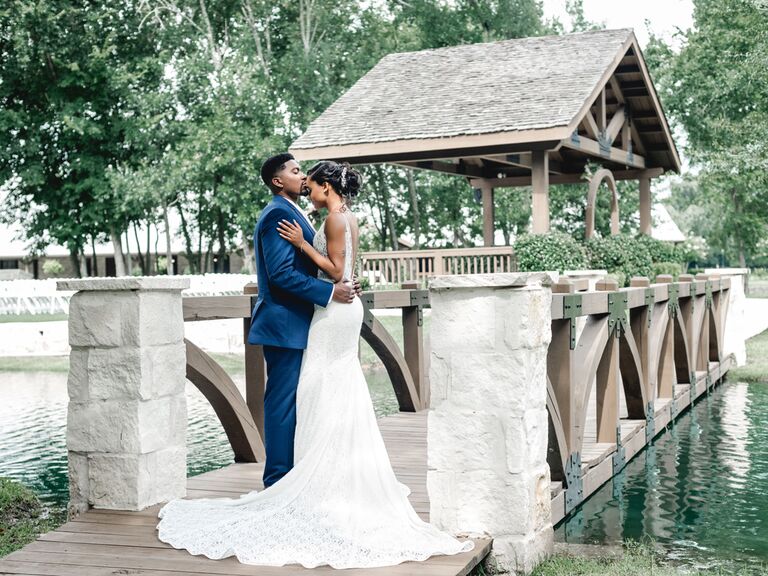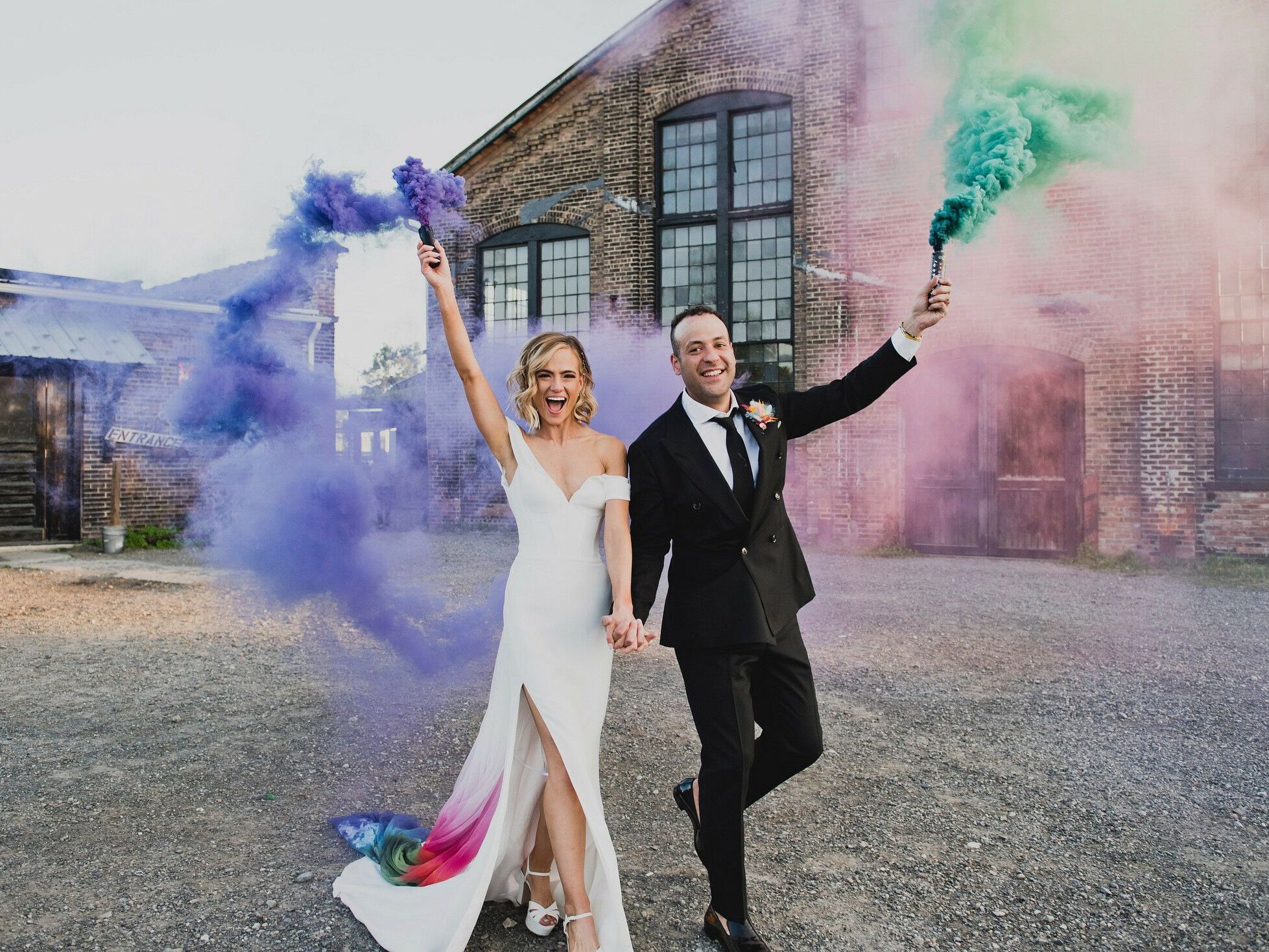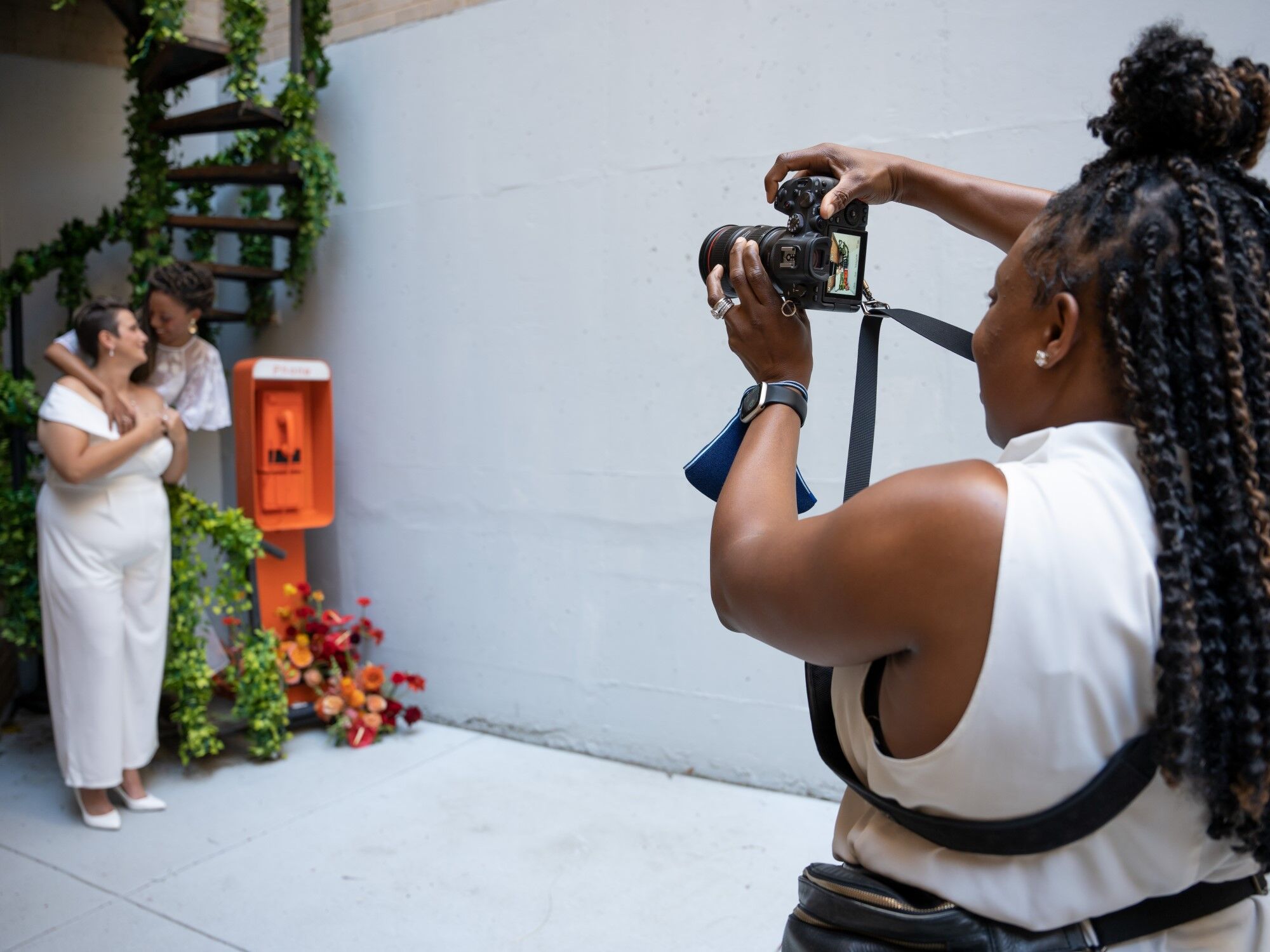How to Get a Texas Marriage License and Plan a TX Wedding
Planning a Texas wedding? Congrats! Texas is a state known for gorgeous weddings, whether you're dreaming of a modern affair or a rustic-chic celebration. To make your union legal, you'll need to get a formal marriage license in Texas—even if you're not a resident.
The marriage license process in Texas can be a bit complicated, but only because there are some legal exceptions to some of the rules the Texas Family Code set in place. From written waivers and county courts to marriage license fees and the 72-hour waiting period, we've covered everything you need to know about making your marriage official.
Rules and regulations can vary from county to county, so it's important to check up on the rules governing your specific county. However, once you get a Texas marriage license, you can get married anywhere in the state and even out of state depending on the location and whether it's accepted. Additionally, if you're looking to change your name, check out our article on the name change process in Texas.
Pro tip: If you live in Texas, but you're getting married outside the state, read our complete guide to getting a marriage license in other regions.
In this article:
- How to Get a Marriage License in Texas
- How Much Does a Texas Marriage License Cost
- How Do You Get a Texas Marriage Certificate
- How to Plan a Texas Wedding
How to Get a Marriage License in Texas
All of the rules surrounding marriages in Texas can be found in the Texas Family Code, which includes most of the state laws governing family and marriage. However, instead of making you read through a massive legal document, we've covered everything you need to know about marriage license applications here—from proper identification to an affidavit of absent applicant.
Legal Requirements to Get Married in Texas
In order to get married in Texas, there are a few conditions. Firstly, you and your partner must be 18 years of age. A court order is required for an applicant under the age of 18, or if you are legally emancipated from your parents, you are legally allowed to get married at 16 or 17 years old.
Secondly, if previously married, applicants must have been divorced for 30 days (unless this requirement is waived by a judge), or If widowed, you'll need to provide proof of death. Finally, applicants cannot be related by whole or half blood or by adoption.
What do you need to get a marriage license in Texas?
To get a marriage license in Texas, you and your partner need proof of age and identity. There is no blood test required in the state of Texas.
When filling out the application, you and your fiancé(e) should be prepared to provide the following information:
- Name and current address
- Country of birth
- Date of birth
- Social security number
- Should you elect to change your surname, you'll need to provide it on the application.
- If widowed, your former spouse's full name and their date of death (or death certificate)
- If divorced, the date and location your divorce decree was issued.
Bring proper forms of identification including proof of age and photo ID, such as:
- Copy of birth certificate
- Driver's license
- Passport
- Visa
- Military ID
Not sure if you and your partner will both be able to appear in person to apply for your marriage license? No worries. In the state of Texas, if one applicant in a couple is unable to be present in person, that person is permitted to fill out a notarized affidavit for an absent applicant for marriage license. If this applies to you, don't forget to hand your proof of identity documents to your partner. They'll still need to be presented to the county clerk.
If you're been previously married, take note of this rule: Texas requires a 30-day waiting period between the finalization of a divorce and the issuance of a new marriage license. If you or your partner is divorced and the divorce was recently finalized (within the past 30 days), you will need to present a copy of the divorce decree waiving the waiting period.
Where do you get a marriage license in Texas?
In Texas, you get a marriage license at a county clerk's office. Most offices require that you schedule an in-person appointment for the to-be-wed couple to meet with a city clerk to obtain the license. To help you get the process started, here are the links for the county clerk websites for the most populated counties in Texas.
County Clerk Offices:
- Bexar County
- Brazoria County
- Cameron County
- Collin County
- Dallas County
- Denton County
- El Paso County
- Fort Bend County
- Galveston County
- Harris County (Find Houston marriage license locations here.)
- Hidalgo County
- Montgomery County
- Nueces County
- Tarrant County
- Travis County
- Williamson County
Can you apply for a marriage license online in Texas?
You can fill out an online application for a Texas marriage license, but you and your future spouse still have to appear in person at the County Clerk's Office. You can also opt to fill out the application upon arrival at the County Clerk's Office.
How long does it take to get a marriage license in Texas?
The processing of a marriage license in Texas is a fairly speedy process, but you must follow the rule of the 72-hour waiting period. Your marriage license is only valid for 90 days after its issuance, so you should plan to say "I do" in the three months after getting your marriage license.
In Texas, you are required to return your marriage license to the county clerk's office after your wedding ceremony (with the signature of the person who performed your ceremony, as well as the date and county of your ceremony) within 30 days of your wedding ceremony.
Is there a waiting period to get married in Texas?
Yes. There is a 72-hour mandatory waiting period between the issuance of a marriage license and a wedding ceremony in Texas. However, this waiting period can be waived for certain circumstances.
If you or your partner is an active duty member of the U.S. armed forces or performs contract work for the U.S. Department of Defense, the waiting period is waived. However, if this situation is applicable to you, you must show military I.D. to the person performing the wedding ceremony. Additionally, couples can waive the waiting period through a 72-hour waiver signed by a district judge. The waiver must be shown to the person performing the ceremony.
The last exception to the waiting period is if you and your partner have a Twogether in Texas certificate or complete a premarital education course described by Texas Family Code Section. This certificate must be presented when you are applying for a marriage license and to the person performing your wedding ceremony.
Who can perform a marriage in Texas?
You may arrange a civil or religious marriage ceremony in any location within the State of Texas. Your ceremony must be conducted by a marriage officiant who is eligible to solemnize marriage ceremonies, including, a licensed or ordained minister, a justice of the peace, Christian minister, priest, Jewish Rabbi, and most judges can marry couples.
Who signs the Texas marriage license?
Once you receive your marriage license, bring it to your wedding ceremony. The couple and the officiant sign the marriage license during the wedding ceremony. In Texas, witnesses are not required to sign.
What's considered a common law marriage in Texas?
A common law marriage in the state of Texas can be established through obtaining a declaration of informal marriage license from the county clerk. In order to get an informal marriage certificate, you and your partner must both be present when applying for the license, over 18 years old and not married to anyone else. You and your partner must agree to live in Texas as a couple and identify as married.
How Much Does a Texas Marriage License Cost
The Texas marriage license fee varies based on the county, so it's important to check with the county clerk's office for the specific amount for your county. Marriage licenses in Texas typically cost between $67 and $81. However, if the couple has completed the Twogether in Texas program, the cost of their marriage license will be discounted.
Additionally, it's important to note that some counties only allow cash payments, while others accept a cashier's check, money order or debit/credit card. Finally, be sure to bring identification that proves you're a Texas resident. If you're not able to prove Texas residency, there's an additional $100 out-of-state fee.
How Do You Get a Texas Marriage Certificate
You can get a plain or certified copy of a marriage license (a.k.a. marriage certificate) by visiting your County Clerk's Office in person. Some counties also allow you to request a copy by mail, so it's important to look up the information for your specific county.
How to Plan a Texas Wedding
Everything is bigger in Texas—including wedding planning. With so many different venues and vendors to consider, we know it can sometimes feel a bit overwhelming. Read on to learn about everything you need to know about planning a marriage ceremony and reception in Texas.
The Different Cities and Areas to Consider for a Texas Wedding
Whether you're planning on hosting a cowboy-inspired rustic affair (yeehaw!) or a sophisticated urban celebration, you're in the right state. Texas has tons of different cities and areas to choose from. For rustic chic weddings, head to the ranches of East Texas or the many renovated warehouses that are popular throughout the state. Searching for a bustling city? Check out the downtown scenes of Austin (the capital city), Dallas, Fort Worth, San Antonio, El Paso and Houston. With six large urban centers to choose from, we're sure you'll find the perfect spot for your big day.
What to Look For in a Texas Wedding Venue
Thick in the search for a Texas venue for your marriage ceremony? Be sure to consider what amenities are a must-have on your list. If you're looking for an all-inclusive venue, the Lone Star State has tons of venues to add to your list. (Read: low-stress wedding planning.) However, if you want to bring your own vendors and specific vision to a venue, you may want to consider a venue that allows for that flexibility. Pro tip: Head to The Knot's Marketplace for a complete list of fantastic Texas wedding venues.
How to Find Texas Wedding Vendors
As one of the country's largest states (by population and land size), Texas has tons of amazing vendors for your big day. Be sure to check on the specific requirements and rules for your wedding venue. Some Texas wedding venues have a preferred vendor list (or a required vendor list). If you want to browse lists of great photographers, DJs and florists in Texas in one place, we've got you covered. Head to The Knot's Marketplace for wedding vendors across the state of Texas.
The Best Times of Year to Have a Texas Wedding for Good Weather
We'll state the obvious: Texas summers are hot. In order to beat the heat, you may want to consider holding your wedding outside of the sweltering summer months. However, if summer is your dream season for your big day, plenty of Texas wedding venues have great indoor spaces (read: air conditioning) and indoor-outdoor hybrid spaces, so you can enjoy your special day sweat-free. Many weddings in Texas happen in the warm (yet not too hot) months of March, April, September and October.
























